Find Help
More Items From Ergsy search
-
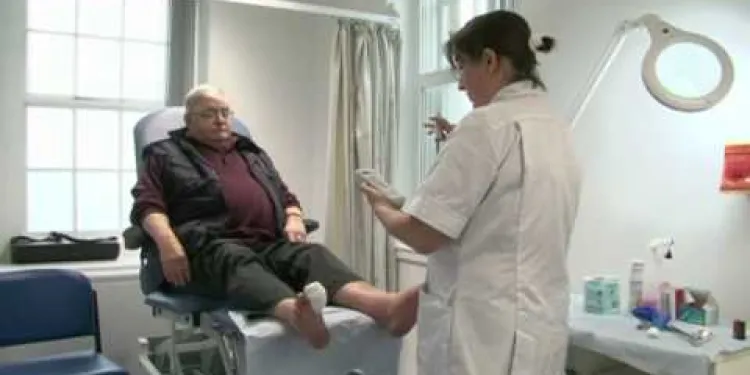
Diabetes Care - Preventing Amputations
Relevance: 100%
-

Leg amputation and life afterwards
Relevance: 58%
-

Can Type 2 Diabetes be prevented?
Relevance: 47%
-

NHS Diabetes Prevention Programme; Preventing Type 2 and improving outcomes for people with diabetes
Relevance: 45%
-
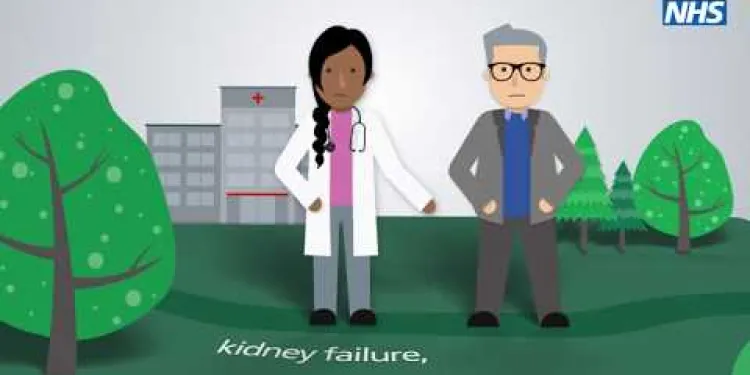
The NHS Diabetes Prevention Programme story
Relevance: 44%
-

What complications are associated with Type 2 Diabetes?
Relevance: 43%
-

Hansa's story - The NHS Diabetes Prevention Programme
Relevance: 43%
-

Are there any clinical trials for preventing type 1 diabetes?
Relevance: 43%
-

Tom's story (NHS Diabetes Prevention Programme)
Relevance: 42%
-

Can exercise help prevent gestational diabetes?
Relevance: 42%
-

Pam’s story - The NHS Diabetes Prevention Programme
Relevance: 42%
-

Tom's story (NHS Diabetes Prevention Programme)
Relevance: 41%
-
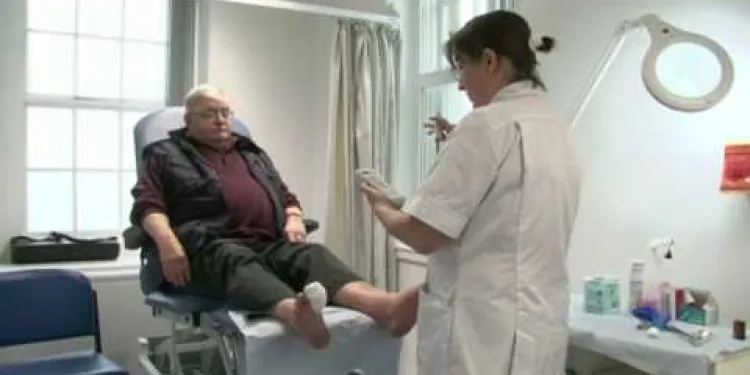
Diabetic Foot Conditions Podiatrist
Relevance: 38%
-

What Is Type 2 Diabetes? | 2 Minute Guide | Diabetes UK
Relevance: 36%
-

Is Type 2 Diabetes hereditary?
Relevance: 34%
-
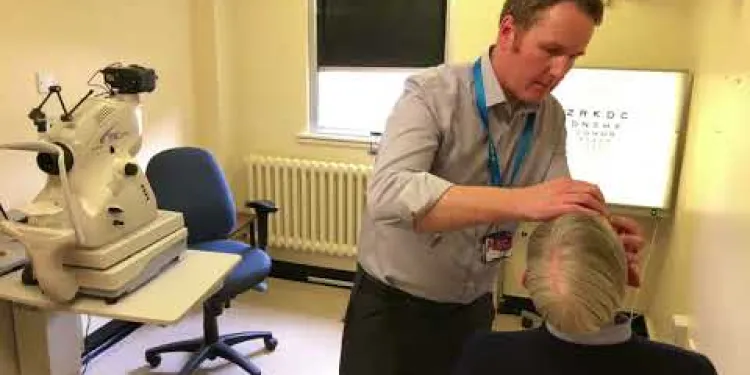
Derbyshire Diabetic Eye Screening - Diabetic Eye Screening
Relevance: 34%
-

What is type 1 diabetes?
Relevance: 34%
-

Diabetes Eye Screening
Relevance: 33%
-

Is there a genetic predisposition to type 1 diabetes?
Relevance: 33%
-

What is type 1 diabetes?
Relevance: 32%
-
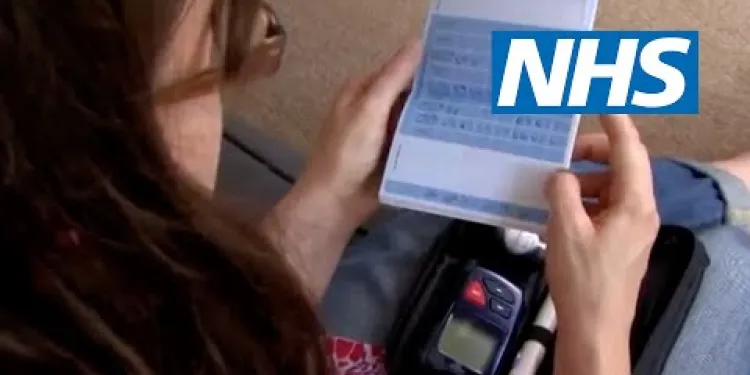
Gestational diabetes | NHS
Relevance: 32%
-
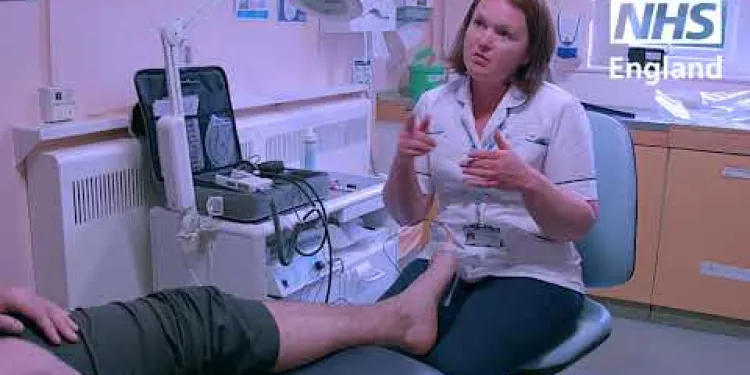
Improving outcomes for people with diabetes
Relevance: 32%
-

Type 1 Diabetes supporting adults to manage Type 1 diabetes
Relevance: 31%
-

What causes Type 2 Diabetes?
Relevance: 31%
-

What are the limitations of type 1 diabetes screening?
Relevance: 31%
-

Gestational Diabetes during pregnancy
Relevance: 31%
-

What is the difference between type 1 and type 2 diabetes?
Relevance: 30%
-

How is Type 2 Diabetes diagnosed?
Relevance: 30%
-

Is Teplizumab used to treat diabetes?
Relevance: 30%
-

What are the benefits of early detection of type 1 diabetes?
Relevance: 30%
-

Can I have sugar if I am diabetic?
Relevance: 30%
-

What does screening for type 1 diabetes involve?
Relevance: 30%
-

What are the symptoms of Type 2 Diabetes?
Relevance: 30%
-

How to manage type 2 diabetes
Relevance: 30%
-

Can Type 2 Diabetes go away?
Relevance: 30%
-

Should I screen my child for type 1 diabetes?
Relevance: 29%
-

Are heart attack symptoms different for people with diabetes?
Relevance: 29%
-

How is Type 2 Diabetes treated?
Relevance: 29%
-
What is Barbie Doll Diabetes?
Relevance: 29%
-

Why should I consider screening my child for type 1 diabetes?
Relevance: 29%
Diabetes Care - Preventing Amputations
Understanding Diabetes and the Risk of Amputations
Diabetes, particularly Type 2, is a prevalent condition in the United Kingdom, affecting millions of individuals. One of the severe complications associated with diabetes is the increased risk of lower limb amputations. Elevated blood sugar levels can lead to nerve damage (neuropathy) and poor circulation, which in turn can cause foot ulcers and infections. Without proper care, these conditions may necessitate amputation. Understanding these risks allows for better preventative measures.Regular Foot Examinations
Regular foot examinations are crucial for preventing complications. Individuals with diabetes should inspect their feet daily for cuts, blisters, redness, swelling, or any other abnormal signs. Healthcare professionals recommend a thorough foot examination by a doctor or podiatrist at least once a year. For those at higher risk, more frequent visits may be necessary. Early detection and treatment of foot issues can help prevent the progression to more severe conditions requiring amputation.Maintaining Blood Sugar Levels
Keeping blood sugar levels within the target range is fundamental in preventing complications. Consistently high blood sugar can damage nerves and blood vessels, increasing the risk of foot problems. Patients should work with their healthcare providers to develop and adhere to a personalized diabetes management plan, which may include medication, diet, and exercise. Regular monitoring of blood sugar levels is essential for effective management.Proper Footwear and Foot Care
Wearing well-fitted shoes that provide ample support and protection can prevent foot injuries. It's essential to choose shoes that do not cause pressure points or blisters. Additionally, maintaining good foot hygiene by washing feet daily with lukewarm water, drying thoroughly, and trimming toenails straight across can help prevent infections. Never ignore corns, calluses, or ingrown toenails, and seek professional care when necessary.Stop Smoking
Smoking can exacerbate blood flow problems, worsening the risk of foot complications in individuals with diabetes. Quitting smoking can significantly improve circulation and overall health, reducing the likelihood of developing severe foot problems. Various resources are available in the UK, including NHS support programs, to help individuals quit smoking.Seek Prompt Medical Attention
If any foot problems are noticed, it is crucial to seek medical attention immediately. Early intervention can prevent minor issues from escalating into serious infections or conditions that might require amputation. Do not self-treat or ignore symptoms, as this can lead to complications. By understanding the risks and taking proactive measures, individuals with diabetes in the United Kingdom can significantly reduce their chances of needing lower limb amputations and lead healthier lives.Diabetes Care - Preventing Amputations
Understanding Diabetes and the Risk of Amputations
Diabetes is a common illness in the UK. Many people have it, especially Type 2 diabetes. It can cause serious problems. One big problem is the risk of losing a leg or foot. High blood sugar can harm your nerves and blood flow. This can cause sores and infections on your feet. These problems might mean a doctor has to remove a leg or foot. Learning about these risks helps you avoid them.Regular Foot Examinations
Checking your feet often is very important. If you have diabetes, look at your feet every day. Check for cuts, blisters, red spots, or swelling. Visit a doctor or foot specialist once a year for a checkup. If you have more foot problems, go more often. Finding and fixing problems early can stop them from getting worse.Maintaining Blood Sugar Levels
Keeping your blood sugar in a healthy range is key to staying well. High blood sugar can hurt your nerves and blood vessels. This makes foot problems worse. Work with your doctor to make a plan. This plan might include taking medicine, eating healthy foods, and exercising. Check your blood sugar regularly.Proper Footwear and Foot Care
Wear shoes that fit well and protect your feet. Choose shoes that do not rub or cause blisters. Wash your feet every day with warm water. Dry them well. Cut your toenails straight across. If you have corns, calluses, or ingrown toenails, see a foot doctor.Stop Smoking
Smoking makes blood problems worse. This can harm your feet if you have diabetes. Quitting smoking helps your blood flow and health. This lowers the chance of foot problems. In the UK, there are programs to help you stop smoking.Seek Prompt Medical Attention
If you notice any foot problem, see a doctor right away. Quick care can stop small problems from becoming big ones. Do not ignore foot issues or try to fix them yourself. By knowing the risks and taking action, people with diabetes in the UK can lower their chance of needing a leg or foot removed and live healthier lives.Frequently Asked Questions
What is diabetes?
Diabetes is a chronic condition that occurs when the body is unable to properly regulate blood sugar levels due to either insufficient insulin production or the body's resistance to insulin.
Why does diabetes increase the risk of amputations?
Diabetes can lead to poor blood circulation and nerve damage, particularly in the feet. This increases the risk of infections and wounds, which can sometimes necessitate amputations if not properly managed.
How can I prevent foot complications if I have diabetes?
You can prevent foot complications by maintaining good blood sugar control, performing daily foot inspections, wearing appropriate footwear, and seeking prompt medical advice if you notice any issues.
What are common signs of foot problems in people with diabetes?
Common signs include foot ulcers, blisters, cuts, redness, swelling, and changes in skin colour or temperature.
How often should I have my feet checked by a professional?
It is recommended to have a professional foot examination at least once a year, but more frequent checks may be necessary based on individual risk factors.
What kind of footwear is best for people with diabetes?
Footwear should be well-fitted, provide adequate support, have soft insoles, and avoid high heels and open-toed shoes. It's often recommended to wear socks that help keep moisture at bay.
Can lifestyle changes help reduce the risk of amputations?
Yes, lifestyle changes like maintaining a healthy diet, exercising regularly, avoiding smoking, and keeping blood sugar levels under control can significantly reduce the risk of complications.
Are there specific exercises that help prevent foot problems?
Low-impact exercises such as walking, swimming, and biking can improve blood circulation and overall health without putting too much stress on your feet.
What should I do if I discover a foot ulcer?
If you discover a foot ulcer, you should seek medical attention immediately. Keeping the wound clean and dry, and following your healthcare provider's instructions are crucial steps.
Why is blood sugar control important in preventing amputations?
Good blood sugar control helps prevent complications like poor circulation and nerve damage, which are major contributors to infections and wounds that can lead to amputations.
Do people with diabetes need to see a specialist for foot care?
It is often beneficial to see a podiatrist or other healthcare specialist who has experience in diabetes care, especially for routine check-ups and if any foot problems develop.
How can I monitor my blood sugar levels effectively?
Regular monitoring using a blood glucose meter, maintaining a log of your readings, and following your healthcare provider's advice can help you manage blood sugar levels effectively.
Are there any specific dietary recommendations for people with diabetes to prevent foot problems?
A balanced diet low in sugars and refined carbohydrates but rich in fruits, vegetables, whole grains, and lean proteins can help maintain stable blood sugar levels, which is vital for preventing foot complications.
Can smoking increase the risk of amputations in people with diabetes?
Yes, smoking can exacerbate circulation problems, contributing to higher risks of infections and complications, including amputations.
What role does regular foot inspection play in preventing amputations?
Regular foot inspection helps in early detection of any changes or problems, allowing for timely medical interventions that can prevent complications leading to amputations.
What is diabetes?
Diabetes is an illness. It makes it hard for your body to use sugar for energy.
When you have diabetes, there is too much sugar in your blood.
Here are some tips to help you understand:
- Ask a doctor or nurse if you have questions.
- Use pictures and videos to learn more.
- Talk with someone you trust about diabetes.
Diabetes is a long-lasting health problem. It happens when the body cannot manage sugar in the blood properly. This can be because the body does not make enough insulin, or it does not use insulin well.
Why can diabetes lead to losing a foot or leg?
Having diabetes can make it hard for blood to flow properly and can hurt the nerves, especially in the feet. This can cause infections and cuts that might not heal well. Sometimes, this can lead to losing a foot if not taken care of.
How can I stop foot problems if I have diabetes?
If you have diabetes, it's important to look after your feet. Here are some easy tips:
- Check your feet every day. Look for cuts, redness, or swelling.
- Wash your feet daily in warm water. Dry them well, especially between the toes.
- Wear shoes that fit well to protect your feet.
- Cut your toenails straight across. Be careful not to cut too short.
- See a doctor if you notice any foot problems.
Use these helpful tools and tips:
- Mirror: Use it to see the bottom of your feet.
- Friend or family: Ask them for help checking your feet.
You can take care of your feet and stop problems by doing a few simple things. Keep your blood sugar levels right. Look at your feet every day. Wear shoes that fit well. See a doctor quickly if you see or feel something wrong with your feet.
What foot problems should people with diabetes look out for?
If you have diabetes, it's important to watch your feet. Here are some common signs of foot problems:
- Pain or swelling: Your feet might hurt or swell up.
- Changes in color: Your feet might turn red or a different color.
- Hot or cold feet: Your feet might feel warmer or cooler than usual.
- Sores or cuts: Look for any cuts, blisters, or sores that do not heal.
- Numbness or tingling: Your feet might feel numb or tingly.
- Infections: Your feet might get infected more easily.
It is good to check your feet every day. Ask a doctor or your helper to check if you see anything unusual.
Here are some common signs to look out for: sores on the feet, blisters, cuts, red areas, swelling, and changes in skin color or how the skin feels.
How many times should I ask a foot doctor to check my feet?
It is good to have a foot check-up by a doctor once every year. Some people might need to have their feet checked more often if they have special health needs.
What shoes are good for people with diabetes?
Do you have diabetes? It is important to have the right shoes to keep your feet healthy and safe.
Here are some tips for choosing the right shoes:
- Make sure the shoes fit well. They should not be too tight or too loose.
- Look for shoes that are soft and comfortable.
- Closed shoes, like sneakers, can protect your feet better.
- If you need help, talk to a doctor or foot specialist. They can give you advice on the best shoes for you.
Some tools and techniques that can help:
- Use a shoehorn to help put on shoes without bending your feet.
- Check your shoes for stones or other things before putting them on.
- Make sure there are no seams inside the shoe that might rub and hurt.
Good shoes help keep your feet happy and healthy!
Wear shoes that fit well and feel comfortable. Shoes should support your feet and have soft insides. It's best to avoid high heels and shoes with open toes. Wearing socks can help keep your feet dry.
Can changing how you live help lower the chances of needing an amputation?
An amputation is when a doctor has to remove a part of your body, like a foot or a leg.
You might be able to lower the chances of this happening by changing some things in your life.
Here are some tips that might help:
- Eat healthy food: Try to eat lots of fruits and vegetables.
- Stay active: Play, run, or walk every day to keep your body moving.
- Visit the doctor: Go to the doctor for regular check-ups.
- Take care of your feet: Check your feet every day to make sure they are okay.
If you have trouble remembering these tips, ask an adult to help you or write them down. You can also use pictures to remind you of what to do.
Yes, changing the way you live can help a lot. Eating good food, moving your body often, not smoking, and keeping your blood sugar at a healthy level can make you feel much better.
Here are some tips that might help:
- Use pictures and simple charts to remember healthy foods.
- Try short videos for easy exercise ideas.
- Set reminders to help you stay on track.
Can exercises stop foot problems?
Yes, there are exercises that can help keep your feet healthy. 1. **Stretch Your Feet**: Stretching your toes and feet can make them stronger. 2. **Walk a Lot**: Walking is good for your feet. It keeps them strong. 3. **Pick Up Things with Your Toes**: Try picking up small objects with your toes. This exercise can make your toes stronger. 4. **Point and Flex**: Point your toes up and down. Do this to keep your feet flexible. If you need help, ask a friend or family member to do these exercises with you. You can also watch videos online to learn how.Simple exercises like walking, swimming, and biking are good for your health. They help your blood move around your body. They don't hurt your feet too much.
What to Do If You Find a Sore on Your Foot
If you find a sore on your foot, follow these steps:
- Tell a grown-up you trust about it.
- Clean the sore gently with water.
- Cover it with a clean bandage.
- Try not to touch or pick at it.
- Ask for help to see a doctor. The doctor can help you make it better.
It's important to take care of foot sores quickly. You can use a magnifying glass to check your foot more closely. If you have trouble, ask someone to help you.
If you find a sore on your foot, go to the doctor right away. Keep the sore clean and dry. Listen to what your doctor tells you to do.
Why is it important to keep blood sugar low to stop body parts from being cut off?
If you have too much sugar in your blood for a long time, it can hurt your body. This can make it easier to get really bad cuts or sores that don’t heal, especially on your feet. If these cuts get worse, sometimes doctors have to cut off a part of the body, like a toe or foot.
Keeping your blood sugar at a safe level helps stop these bad cuts from happening. It keeps your body parts safe.
Here are some things that can help:
- Eat healthy foods like fruits and veggies.
- Move your body with fun activities like walking or dancing.
- Check your blood sugar often if a doctor says you should.
- Talk to your doctor if you feel sick or notice changes in your body.
It is important to keep your blood sugar at the right level. This helps stop problems like bad blood flow and nerve damage. These problems can cause infections and sores, which might mean someone needs to have a body part removed.
To make reading easier, try using tools like audiobooks or a screen reader. These tools read the text out loud to you.
Do people with diabetes need to see a foot doctor?
If you have diabetes, you should see a special doctor for your feet. This doctor is called a podiatrist. They help keep your feet healthy and check for problems.
People with diabetes can get foot problems because diabetes can hurt the nerves in their feet. This is why seeing a foot doctor is very important.
Here are some ways to keep your feet healthy:
- Check your feet every day for cuts or sores.
- Wear comfortable shoes that fit well.
- Keep your feet clean and dry.
- Ask a grown-up to help if you find it hard to do these things.
It's good to visit a foot doctor if you have diabetes. They can check your feet and help if you have any problems.
How can I check my blood sugar levels easily?
Do you need to keep an eye on your blood sugar? Here’s how you can do it:
- Use a blood sugar meter. This is a small machine that checks your sugar levels. Follow the instructions to use it.
- Check at the same times each day. This helps you see changes over time.
- Write down your blood sugar numbers. You can use a notebook or an app on your phone.
- Share these numbers with your doctor. This helps them know how you are doing.
Try using a checklist or alarm to remind you when to check your blood sugar. You might find it helpful to have a family member or friend support you.
Check your blood sugar often with a special tool called a blood glucose meter. Write down your results. Listen to your doctor's advice. This will help you keep your blood sugar under control.
Can people with diabetes eat certain foods to keep their feet healthy?
If you have diabetes, eating the right foods can help keep your feet healthy.
Here are some tips:
- Eat lots of fruits and vegetables. They are good for you.
- Choose whole grains like brown bread or brown rice.
- Pick lean meats like chicken or fish.
- Drink plenty of water every day.
- Avoid too much sugar and sweets.
Using a plate to divide food into sections can help you eat the right amount.
Talking to a doctor or a dietitian can give you more ideas on what to eat.
Eating the right foods can help take care of your feet. It's good to eat foods like fruits, vegetables, whole grains, and lean meats. Try not to eat too many sugary foods or foods with white flour. This can help keep your blood sugar steady and your feet healthy.
Can smoking cause people with diabetes to lose a foot or leg?
If you have diabetes and you smoke, it can be bad for your health.
Smoking can make it more likely that you could lose a foot or leg.
It's important to talk to a doctor to understand why and how to stay healthy.
Tools like apps or talking with a support group can help you quit smoking.
Smoking is bad for blood flow. It can make it harder for blood to move around your body. This can cause more infections and problems. Sometimes, it can even lead to needing to cut off a body part, like a foot or a hand.
To make reading easier, you can:
- Use tools that read the text out loud for you.
- Highlight or underline important words.
- Ask someone to explain anything you don’t understand.
- Take breaks if you feel tired while reading.
How does checking your feet often help stop them from being cut off?
Looking at your feet often helps you notice any changes or problems. This way, you can get help from a doctor quickly. It can also stop bigger problems, like needing to remove a foot.
Useful Links
Have you found an error, or do you have a link or some information you would like to share? Please let us know using the form below.
-->
This website offers general information and is not a substitute for professional advice.
Always seek guidance from qualified professionals.
If you have any medical concerns or need urgent help, contact a healthcare professional or emergency services immediately.
Some of this content was generated with AI assistance. We’ve done our best to keep it accurate, helpful, and human-friendly.
- Ergsy carfully checks the information in the videos we provide here.
- Videos shown by Youtube after a video has completed, have NOT been reviewed by ERGSY.
- To view, click the arrow in centre of video.
- Most of the videos you find here will have subtitles and/or closed captions available.
- You may need to turn these on, and choose your preferred language.
- Go to the video you'd like to watch.
- If closed captions (CC) are available, settings will be visible on the bottom right of the video player.
- To turn on Captions, click settings .
- To turn off Captions, click settings again.
More Items From Ergsy search
-

Diabetes Care - Preventing Amputations
Relevance: 100%
-

Leg amputation and life afterwards
Relevance: 58%
-

Can Type 2 Diabetes be prevented?
Relevance: 47%
-

NHS Diabetes Prevention Programme; Preventing Type 2 and improving outcomes for people with diabetes
Relevance: 45%
-

The NHS Diabetes Prevention Programme story
Relevance: 44%
-

What complications are associated with Type 2 Diabetes?
Relevance: 43%
-

Hansa's story - The NHS Diabetes Prevention Programme
Relevance: 43%
-

Are there any clinical trials for preventing type 1 diabetes?
Relevance: 43%
-

Tom's story (NHS Diabetes Prevention Programme)
Relevance: 42%
-

Can exercise help prevent gestational diabetes?
Relevance: 42%
-

Pam’s story - The NHS Diabetes Prevention Programme
Relevance: 42%
-

Tom's story (NHS Diabetes Prevention Programme)
Relevance: 41%
-

Diabetic Foot Conditions Podiatrist
Relevance: 38%
-

What Is Type 2 Diabetes? | 2 Minute Guide | Diabetes UK
Relevance: 36%
-

Is Type 2 Diabetes hereditary?
Relevance: 34%
-

Derbyshire Diabetic Eye Screening - Diabetic Eye Screening
Relevance: 34%
-

What is type 1 diabetes?
Relevance: 34%
-

Diabetes Eye Screening
Relevance: 33%
-

Is there a genetic predisposition to type 1 diabetes?
Relevance: 33%
-

What is type 1 diabetes?
Relevance: 32%
-

Gestational diabetes | NHS
Relevance: 32%
-

Improving outcomes for people with diabetes
Relevance: 32%
-

Type 1 Diabetes supporting adults to manage Type 1 diabetes
Relevance: 31%
-

What causes Type 2 Diabetes?
Relevance: 31%
-

What are the limitations of type 1 diabetes screening?
Relevance: 31%
-

Gestational Diabetes during pregnancy
Relevance: 31%
-

What is the difference between type 1 and type 2 diabetes?
Relevance: 30%
-

How is Type 2 Diabetes diagnosed?
Relevance: 30%
-

Is Teplizumab used to treat diabetes?
Relevance: 30%
-

What are the benefits of early detection of type 1 diabetes?
Relevance: 30%
-

Can I have sugar if I am diabetic?
Relevance: 30%
-

What does screening for type 1 diabetes involve?
Relevance: 30%
-

What are the symptoms of Type 2 Diabetes?
Relevance: 30%
-

How to manage type 2 diabetes
Relevance: 30%
-

Can Type 2 Diabetes go away?
Relevance: 30%
-

Should I screen my child for type 1 diabetes?
Relevance: 29%
-

Are heart attack symptoms different for people with diabetes?
Relevance: 29%
-

How is Type 2 Diabetes treated?
Relevance: 29%
-
What is Barbie Doll Diabetes?
Relevance: 29%
-

Why should I consider screening my child for type 1 diabetes?
Relevance: 29%


